McConnell Urges Major Hearings, Vote Before US Reenters Iran Deal
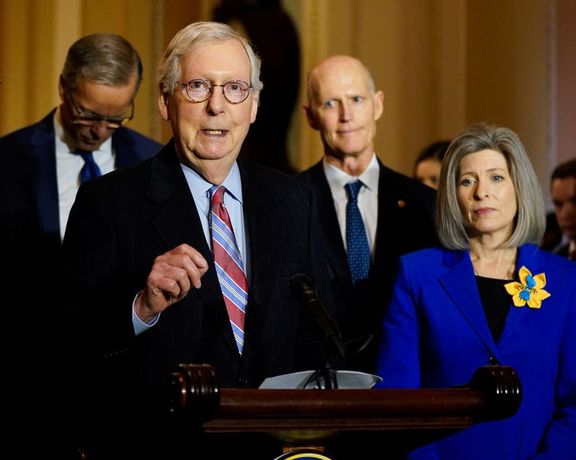
The Senate minority leader says US policies toward Iran is a concern for both Republicans and Democrats, calling for major hearings on Vienna nuclear talks.

The Senate minority leader says US policies toward Iran is a concern for both Republicans and Democrats, calling for major hearings on Vienna nuclear talks.
Mitch McConnell urged the Senate Foreign Relations Committee on Monday to hold hearings before Washington reenters the nuclear deal with Tehran, saying that Congress should be consulted ahead of restoring the agreement.
Echoing earlier comments by committee Chairman Robert Menendez (D-NJ) to exert more pressure to restrict Iran’s nuclear program, missile program, and stop its attacks on American personnel and assets around the Middle East, McConnell said the decision warrants bipartisan consideration.
McConnell warned that if the administration aims to remove sanctions Congress should vote on it.
He noted that the imminent “sequel to the bad 2015 Iran nuclear deal” means “choosing weakness in the Middle East” because it is “an enormous step in the wrong direction”.
“It appears not to be a ‘longer and stronger’ deal as was promised, but a “weaker and shorter deal” that won’t “safeguard and increase our leverage over Tehran and its Revolutionary Guard”.
Referring to sevaral diplomats leaving the US negotiating team because of Special Envoy Robert Malley’s “going much too soft”, he asked the administration “to clearly explain its Middle East strategy”.
“I have encouraged them to push back strongly against Iranian aggression and contest growing Russian and Chinese influence in a region of significant interest to the United States”, he added.
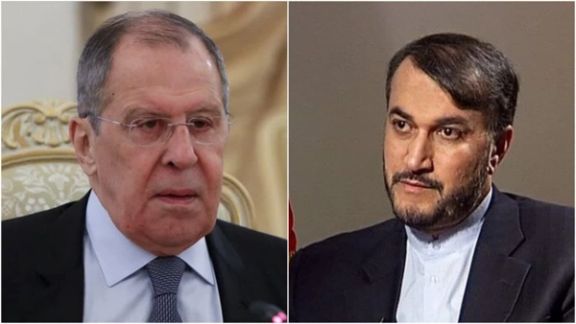
Russian demands that Ukraine sanctions should not impact its dealings with Iran have sparked controversy in Iranian media and calls to save the nuclear deal.
Russian Foreign Minister Sergey Lavrov has demanded guarantees from the United States to ensure that sanctions imposed on Russia will not affect trade between Tehran and Moscow has led to media warning the government against a "Russian Trap" and officials have been trying to make comments to save face.
Other observers such as Eurasia analyst Hassan Beheshtipour and IRNA chief Mohammad Reza Nowruzpour have also talked about the ‘Russian Trap’ in an interview with Khabar Online website.
Iranian Foreign Minister Hossein Amir Abdollahian said on Monday, March 7, that Iran will not allow any foreign element to undermine Iran's national interests in the Vienna talks.
This comes while Russia's ambassador in Tehran, Levan Dzhagaryan, told reporters that Iranians should not take reports by foreign radios too seriously. He was mindless of the fact that the comment was made by Lavrov, not any foreign radio.
Reformist daily newspaper Arman on Monday called on the Iranian government not to allow the nuclear deal with world power to be taken hostage by Russia, the country that wishes to use it as a bargaining chip in the talks with the West over Ukraine.
Iranian diplomat Hamid Abutalebi, a centrist politician, also called on the government to strike a strategic balance through direct negotiations with the United States in order to spoil the game that has been started by Russia.
Elsewhere Arman quoted Pir Mohammad Mollazehi, a seasoned political analyst, as saying that "it is time for a negative balance approach," adding that the Russians have an interest in boosting the tensions between Iran and the West.
Moderate conservative news website Khabar Online reported that Russia is offering its crude oil in the market with eye-catching discounts, and warned the Iranian government that Russia wishes to replace Iran in oil deals with China. Currently China is almost Iran's only customer and Iran reportedly sells its oil to China at a discount price. This comes while with the increased risk in transactions involving Russian oil, Iran is facing new opportunities in the global market for oil.
Hamid Hosseini, an energy market analyst and a member of the Iranian Chamber of Commerce told Khabar Online said that many countries have reduced their oil purchases from Russia without declaring any sanctions against Moscow. At the same time, insurance companies charge higher premiums for tankers carrying Russian oil, he said.
Hosseini said that the situation has made Iran effectively Russia's rival in the oil market. He added that Russia might offer its oil at a further discounted price in order to replace Iran in crude exports to China. He explained that the discount offered by Russia is twice as much the discount Iran is giving to Beijing.
Asked if under the circumstances an agreement with the United States is feasible, Hosseini said he believed a deal is within reach, and agreement may be finalized before the Iranian New Year in less than two weeks.
Hassan Beheshtipour, the Eurasia analyst, in his interview with Khabar online warned the Iranian government to adopt independent policies and avoid relying on foreign powers in order to protect the country's independence and territorial integrity.
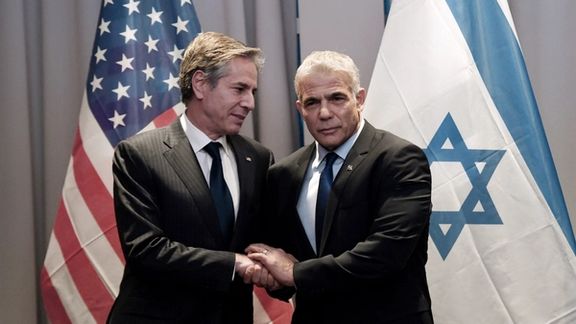
Rafael Mariano Grossi, the UN nuclear monitoring chief, highlighted Monday Ukraine and Iran as “two major issues high on the international community’s agenda.”
In his statement to the board of the International Atomic Energy Agency (IAEA), Grossi said the IAEA was monitoring the “precarious situation at Ukraine’s nuclear sites” where there had been an “unprecedented danger of a nuclear accident,” following a Russian shell hitting the Zaporizhzhya nuclear power plant.
Over Iran, Grossi confirmed that following his visit to Tehran Saturday, the agency was expecting by March 20 “written explanations, including related supporting documents” from Iran over the agency’s questions about Iranian nuclear work at three sites before 2003.
Grossi agreed in meetings with Mohammad Eslami, head of the Atomic Energy Agency of Iran (AEOI), to clear up these matters by June 20. This timetable eased fears in Vienna they might stymie talks in the Austrian capital aimed at reviving the 2015 Iran nuclear deal, the JCPOA (Joint Comprehensive Plan of Action).
Further consultations
Iran’s official news agency IRNA reported Monday that Iran’s lead negotiator Ali Bagheri-Kani was returning to Tehran for further consultations as expert groups continued work in Vienna.
While the nuclear talks have since April 2021 struggled to agree which United States sanctions contravene the JCPOA, and exactly how the expanded Iran nuclear program could be returned to JCPOA limits, the Ukraine crisis has stirred the pot.
Russian foreign minister Sergei Lavrov suggested Saturday that any sanctions against Russia over Ukraine should not affect the JCPOA and trade relations with Iran. "And we'd like to receive an answer, a very clear answer; we need guarantees that these very sanctions won't affect the regime of trade-economic and investment ties embedded in the Joint Comprehensive Plan of Action on the Iranian nuclear program," Lavrov told reporters in Moscow.
"Agreements on reinstating the JCPOA imply a set of reciprocal obligations, such as Iran's obligations as to the volume and parameters of its civilian nuclear program, and obligations of the other participants to make sure that projects for the development of civilian nuclear energy in full compliance with the Treaty on the Non-Proliferation of Nuclear Weapons, in full compliance with and under control of the IAEA, with support from Russia, China, and other countries, will be implemented," Lavrov explained.
Nuclear blackmail
Anonymous diplomats, including a French presidential official, called this “blackmail,” suggesting Moscow intends to use the JCPOA as a way to circumvent Ukraine sanctions. Some Iranian media outlets claimed Russia wanted to wreck the Vienna talks, perhaps to keep Tehran’s oil off world markets.
But the Iranian foreign ministry Monday reported a phone call between Foreign Minister Hossein Amir-Abdollahian and Lavrov in which Amir-Abdollahian agreed that Tehran’s relations with Russia should not be upset by further sanctions.
"We are against both war and sanctions,” the Iranian foreign minister said, while Lavrov had again backed Iran’s “logical demands” in the Vienna talks.
Also dealing with the fallout of the Ukraine crisis, Israeli foreign minister Yair Lapid, meeting US Secretary of State Anton Blinken in Riga, admitted to “differences” with Washington over Iran. Lapid called the agreement being readied in Vienna “bad and ineffective.”

The nuclear deal to be signed with Iran is “a bad and ineffective” agreement, Israeli foreign minister Yair Lapid said Monday after meeting US Secretary of State Antony Blinken in Riga.
Although the main topic of discussion was Israel’s diplomatic efforts to end the Ukraine crisis, the pair also discussed the talks in Vienna on a possible return to the 2015 nuclear deal between Iran and world powers.
After the meeting Lapid said Israel “is continuing its effort to prevent Iran from becoming a nuclear threshold state. The nuclear agreement which stands to be signed in Vienna is a bad and ineffective agreement.
Before the start of discussion Lapid said his meeting with Blinken comes at a time "when the world order is changing," referring to both the war in Ukraine and the nuclear talks.
While not a party to the nuclear negotiations between Iran and world powers in Vienna, Israel has conferred with the US administration in hope of wielding more clout over any revival of a 2015 deal with Tehran that was reached over its objections.
"It’s not secret we have our differences on this, but it is a conversation between allies that have a common goal which is to prevent Iran from becoming a nuclear threshold country," Lapid said before the meeting.
Meanwhile, Iran's chief nuclear negotiator Ali Bagheri Kani will return to Tehran on Monday for consultations, Iranian media reported.
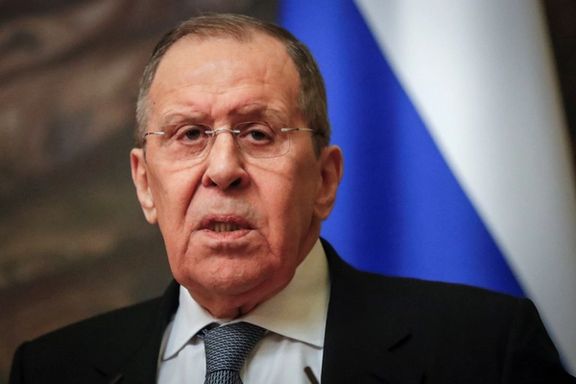
France warned Russia Monday not to resort to blackmail in Iran nuclear talks by demanding a US guarantee that Ukraine sanctions would not hurt its trade with Tehran.
Iran’s foreign ministry spokesperson Saeed Khatibzadeh said Iran was awaiting an explanation of the Russian demand via "diplomatic channels", adding however that the talks should not be affected by sanctions imposed on Moscow, whose contribution to negotiations so far had been “constructive.”
Russian Foreign Minister Sergei Lavrov said on Saturday that Moscow wanted a written US guarantee that Russia's trade, investment and military-technical cooperation with Iran would not be hindered by Western sanctions imposed since Russia invaded Ukraine.
On Saturday, a senior Iranian official speaking to Reuters had called Russia's move unconstructive.
Russia's Ambassador to Tehran Levan Dzhagaryan said on Monday Moscow plans to give Iran an explanation of the guarantees it has requested.
A French presidency official told reporters that diplomats tended to treat each issue on its merits and not conflating them.
"Because otherwise, in reality, it's just blackmail and not diplomacy," he told reporters.
Western officials say compartmentalizing the Iran nuclear dossier has been possible due to a common
A European diplomat added: "The Russians are really trying it on and the Iranians aren’t happy although of course not saying too much publicly. We’re trying to find a way through.",
Iran's top security official Ali Shamkhani said on Monday that negotiators were evaluating new components that had affected the Vienna talks and that Iran was adapting initiatives to accelerate an agreement.
US Secretary of State Antony Blinken sought on Sunday to dispel talk of obstacles, saying the sanctions imposed on Russia over Ukraine had nothing to do with the nuclear deal. Lavrov’s statement on Saturday, however, went farther than Russia’s role in facilitating a nuclear deal with Iran as he demanded a US waiver from Ukraine sanctions in all its dealings with Tehran.
Wall Street Journal, cited a “western diplomat” Saturday that Lavrov might be “using this as a play to try to carve a huge hole out of the overall Ukraine sanctions.” This would be “a different story,” the diplomat suggested, from guarantees simply over work directly linked to a restored JCPOA.
Diplomats said Washington and Tehran were also still trying to resolve other outstanding issues, which were also stalling an agreement.
European negotiators have temporarily left the talks as they believe they have gone as far as they can and it is now up to the two main protagonists to agree, three diplomats said.
With reporting by Reuters
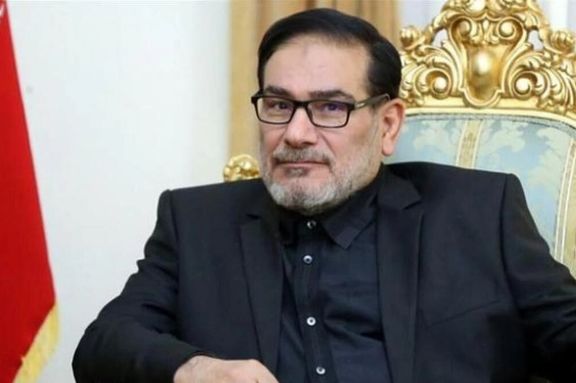
Iran's top security official says the fate of the Vienna nuclear negotiations is tied to delays in the political decisions by the United States.
The secretary of Iran’s Supreme National Security Council, Ali Shamkhani, repeated an Iranian argument on Monday that the “prospect of a deal in Vienna talks remains unclear due to Washington's delay in making political decisions”.
The priority of Iranian negotiators is to resolve the remaining issues that are considered as the red lines for Tehran, he added, calling for “new initiatives from all parties” for a swift conclusion to a “strong deal.”
In another tweet earlier in the day, Shamkhani said, "Vienna participants act and react based on [their own] interests and it's understandable. Our interactions with 4+1 are also solely driven by our people's interests. Thus, we're assessing new elements that bear on the negotiations and will accordingly seek creative ways to expedite a solution”.
Iran’s foreign ministry said Monday that Tehran is awaiting clarification from Moscow over its demand to be exempted from Ukraine sanctions in its dealing with Iran.
"We have seen and heard about [Russian Foreign Minister Sergei] Lavrov's comments in the media. We are awaiting to hear its details through diplomatic channels," the ministry’s spokesman Saeed Khatibzadeh said at his weekly press conference.